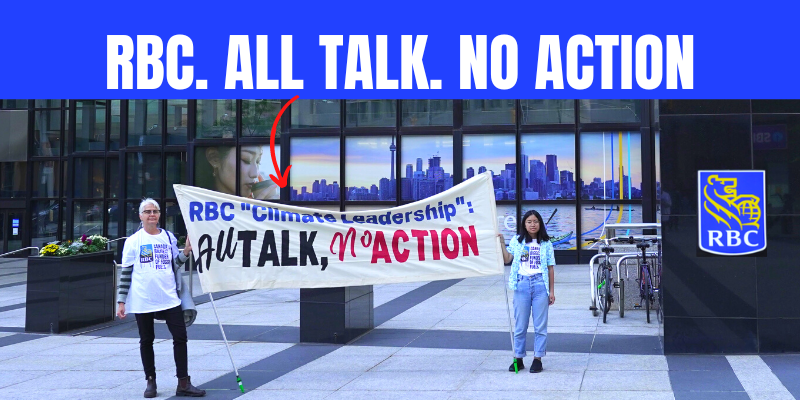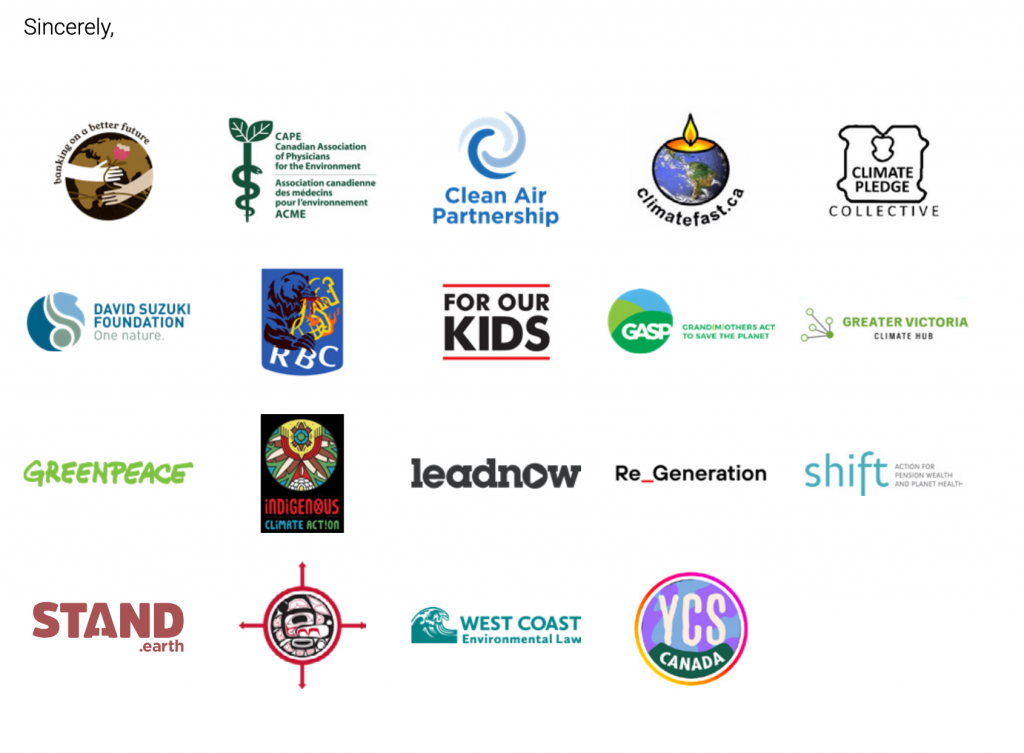Open letter to Dave McKay on real leadership

Photo credit: Stella Racca, Instagram: @stella_by_starlight__
RBC CEO Dave McKay recently told the Toronto Star editorial board that RBC – the world’s 5th biggest funder of fossil fuels – was a climate leader. The article came out the very same week a massive drill began tunnelling under the headwaters of Wedzin Kwa on unceded Wet’suwet’en territory for the Coastal Gaslink fracked gas pipeline that RBC helps finance.
19 organizations supported by over two million people have responded with an open letter calling out RBC’s greenwashing and demanding real leadership on climate, which means phasing out financing for coal, oil, gas, and tar sands, respecting Indigenous rights, and cutting funding to projects that violate Indigenous rights.
Read the full letter in English or French here, or below.
Mr. McKay,
We are writing to you as organizations deeply concerned that RBC continues to be Canada’s top
funder of climate chaos – including projects that expand fossil fuels and violate Indigenous rights
– at a critical time for protecting biodiversity and of energy transition.
In your recent interview with the Toronto Star, you claim that RBC is a climate leader, while
attempting to shift the responsibility to the Federal Government and other CEOs. This claim
came the very same week a massive drill began tunnelling under the headwaters of Wedzin
Kwa on unceded Wet’suwet’en territory for the Coastal Gaslink fracked gas pipeline that RBC
helps finance.
Leadership on climate and Indigenous rights from the world’s fifth largest funder of fossil fuels
looks like providing a timeline to phase out financing the expansion of coal, oil, gas, tar sands,
and projects that violate Indigenous rights – RBC is instead increasing its investment in fossil
fuels. It also looks like severing ties with TC Energy and Coastal GasLink which threatens critical
ecosystems and waterways and does not have the consent of Wet’suwet’en hereditary chiefs.
RBC needs to adopt financial policies that ensure the rights of Indigenous people are upheld,
affirmed, and respected including adhering to existing policies and practices that ensure the
Free, Prior and Informed Consent (FPIC) of Indigenous peoples as defined in the United Nations
Declaration of The Rights of Indigenous Peoples (UNDRIP) under Article 32.
The International Energy Agency’s Net Zero Emissions by 2050 Scenario (NZE), based on a
pathway consistent with limiting the global temperature rise to 1.5 °C, requires ‘a huge decline
in the use of fossil fuels.’ The outlook states “beyond projects already committed as of 2021,
there are no new oil and gas fields approved for development, and no new coal mines or
mine extensions are required.’ A credible pathway to achieve net-zero, which RBC has publicly
committed to, would require a 50% absolute emissions reduction target covering all aspects of
your business including scope 1, 2 and scope 3 emissions which includes financed emissions
by 2030. This is the bar that RBC must meet.
We understand that RBC is poised to release new targets for reducing emissions across its
lending portfolio by 2030 in the coming weeks. We will be watching closely to see your timeline
for phasing out investments in fossil fuels, and hold you accountable if you do not.

